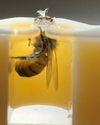
It is very likely that we will heard about the use of CRISPR technology and its great potential for addressing human health issues, as well as it holds the promise for providing solutions for major agricultural challenges. The invention of CRISPR-Cas gene editing in the last decade brought a great revolution in biology, providing researchers a way to make selective and precise changes to an organism's genetic code. CRISPR/Cas9 is undoubtedly one of the greatest scientific advancements of the last 100 years. In 2012, Jennifer Doudna and Emanuelle Charpentier published a peer-reviewed paper discussing the use of CRISPR/CasQ in gene editing. They had just democratised gene editing and changed biotechnology for years to come. The cost also tends to go down significantly with time, as we've seen with numerous molecular biology tools, and CRISPR is no exception. Recent the publications on CRISPR/Cas9 grew over 1000-fold over the last 10 years. Scientists opined it as a new gene editing technology called CRISPR to create genetic mutations in a more subtle way which is faster and cheaper than earlier techniques. It's different from a classical GMO in that we're not adding a genome from another organism,” Gmitter says. In CRISPR we are knocking out a few existing genes. In 2020, both Doudna and Charpentier won the Nobel Prize in Chemistry for their discovery of the genetic scissors. This, coupled with extensive media coverage, has made generalist and specialist investors alike very interested in CRISPR/Cas9 applications especially in the realm of therapeutics.
Bu hikaye Scientific India dergisinin November - December 2022 sayısından alınmıştır.
Start your 7-day Magzter GOLD free trial to access thousands of curated premium stories, and 9,000+ magazines and newspapers.
Already a subscriber ? Giriş Yap
Bu hikaye Scientific India dergisinin November - December 2022 sayısından alınmıştır.
Start your 7-day Magzter GOLD free trial to access thousands of curated premium stories, and 9,000+ magazines and newspapers.
Already a subscriber? Giriş Yap

Nano priming Seeds: A Small Innovation Sparkling Big Advances in Germination
Nanopriming is an emerging agricultural technique where the seeds are treated with nanoparticles to improve their germination, growth, and overall performance.

Father-Daughter Team Decodes Mars' Alien Signal
There is no definitive answer to whether aliens exist, but there is a lot of work being done to find out:

Sixth generation Computer: The future computing technology
We are in a transition towards a digital world, where everything will be dealt with in digital format.

Massive Underground Water Reservoir Found on Mars
Scientists have discovered a reservoir of liquid water on Mars deep in the rocky outer crust of the planet.

Tofu: The Budget-Friendly Superfood for Vegetarians
Tofu is a plant-based protein-rich food item that can be easily prepared at the household level with limited resources.

Exploring the Marvels of Carbon Quantum Dots: A Leap into the Future of Nanotechnology
In the ever-changing world of nanotechnology, carbon quantum dots (CQDs) have emerged as super tiny but incredibly powerful entities that have massive potential in various fields.

Sniffing Cancer- Honeybee, a potential cancer detector?
Imagine harnessing the super-sense of a honeybee to sniff out lung cancer.

Massive biomolecular shifts occur in our 40s and 60s
If it's ever felt like everything in your body is breaking down at once, that might not be your imagination.

How does excess sugar affect the developing brain throughout childhood and adolescence
Parents often stress about their kids' sugar intake, but it can be hard to know how much is too much or what to do about it.

Scientists Have Grown Diamonds in Just 150 Minutes
Natural diamonds take billions of years to form in the extreme pressures and temperatures deep underground. Synthetic forms can be produced far quicker, but they typically still require some intense squishing for up to several weeks.